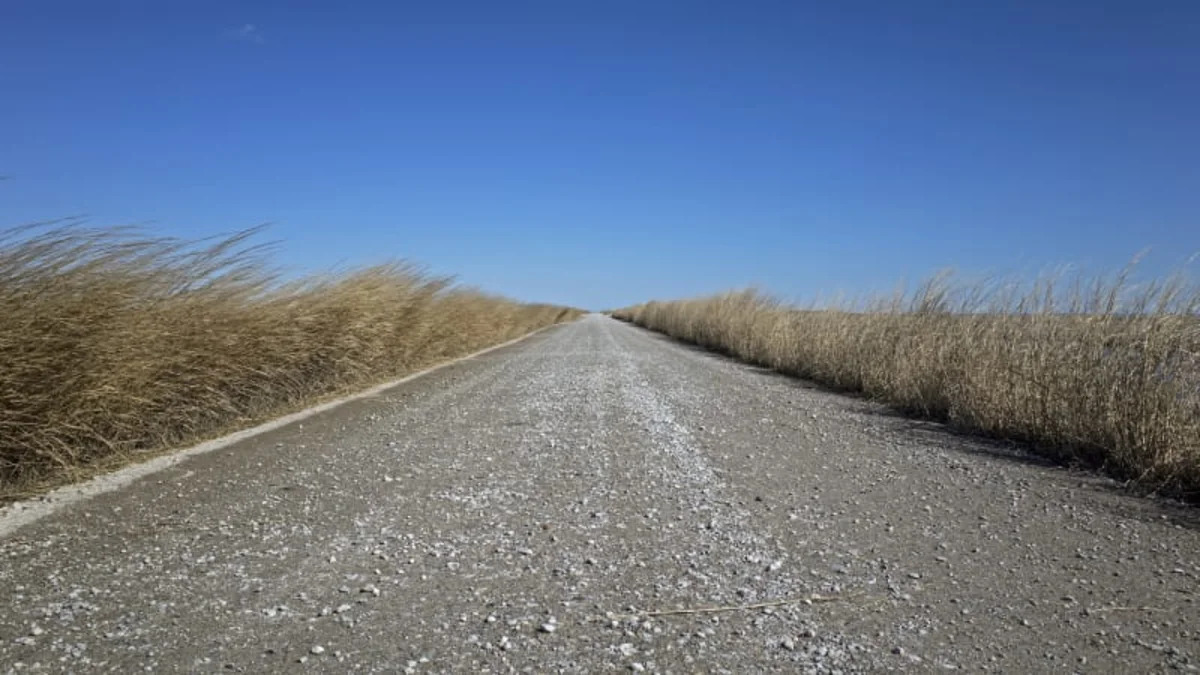Citizens of Omaha, Nebraska, are up in arms after the city, unable to keep up with the rising price of infrastructure maintenance, started converting paved streets to gravel.
According to the New York Times, Omaha is like many big cities throughout the country -- struggling to maintain its infrastructure. After decades of neglect and deferred maintenance, many of Omaha's streets, sidewalks, and bridges are crumbling away, especially those that were laid down quickly and with sub-par materials in the post-war boom. While some neighborhoods have raised money and split costs with the city to get their streets up to par again, Omaha has developed a more extreme plan for those neighborhoods unable or unwilling to split repair costs–reclamation.
Reclamation is Omaha's euphemism for converting a damaged paved street to gravel. While converting damaged streets to gravel or even closing them all together is certainly not rare in America's cities, many of Omaha's citizens, including the mayor, are less than thrilled with the idea.
"I wouldn't like it and neither do the residents that live on those streets," Mayor Jean Stothert told the Times. "We are about 50 years behind where we should be as far as resurfacing and repair. I can't catch up on 50 years of neglect in three or four years."
Residents opposed to road reclamation have taken to calling city hall, organizing neighborhood meetings, and even lawsuits to deal with the issue. Many believe that reclamation is a step back, a blow to the city's stature and a drag on property values.
"In grinding up streets and putting gravel roads in the middle of the core of your city, that damages the reputation, that damages the image and brand of a city," said former Nebraska lawmaker Heath Mello.
The city's public works department maintains that reclamation is a defensible and common policy when faced with old, crumbling infrastructure and limited cash.
Related Video:
According to the New York Times, Omaha is like many big cities throughout the country -- struggling to maintain its infrastructure. After decades of neglect and deferred maintenance, many of Omaha's streets, sidewalks, and bridges are crumbling away, especially those that were laid down quickly and with sub-par materials in the post-war boom. While some neighborhoods have raised money and split costs with the city to get their streets up to par again, Omaha has developed a more extreme plan for those neighborhoods unable or unwilling to split repair costs–reclamation.
Reclamation is Omaha's euphemism for converting a damaged paved street to gravel. While converting damaged streets to gravel or even closing them all together is certainly not rare in America's cities, many of Omaha's citizens, including the mayor, are less than thrilled with the idea.
"I wouldn't like it and neither do the residents that live on those streets," Mayor Jean Stothert told the Times. "We are about 50 years behind where we should be as far as resurfacing and repair. I can't catch up on 50 years of neglect in three or four years."
Residents opposed to road reclamation have taken to calling city hall, organizing neighborhood meetings, and even lawsuits to deal with the issue. Many believe that reclamation is a step back, a blow to the city's stature and a drag on property values.
"In grinding up streets and putting gravel roads in the middle of the core of your city, that damages the reputation, that damages the image and brand of a city," said former Nebraska lawmaker Heath Mello.
The city's public works department maintains that reclamation is a defensible and common policy when faced with old, crumbling infrastructure and limited cash.
Related Video:


Sign in to post
Please sign in to leave a comment.
Continue